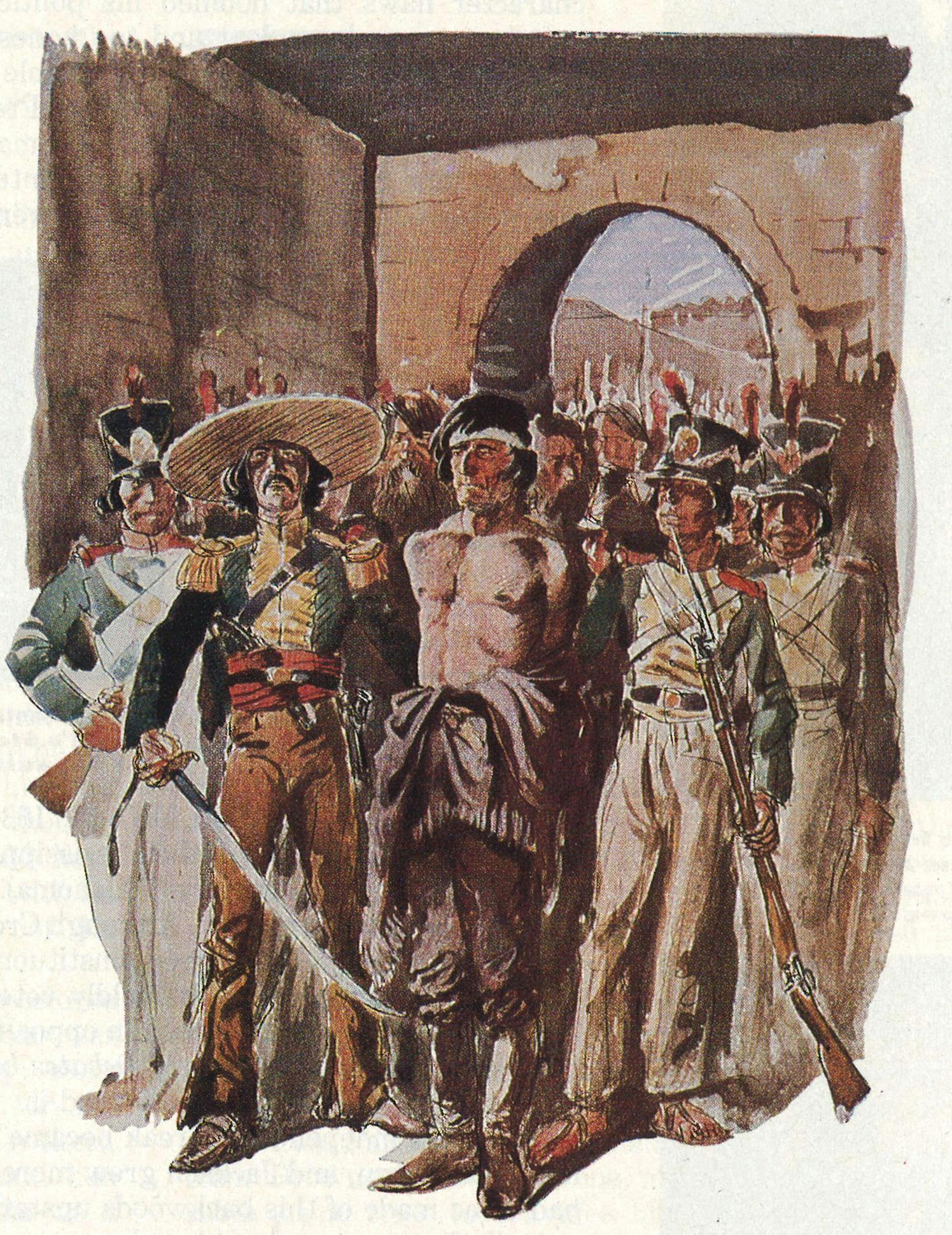
When Dan Kilgore wrote a small historical book in 1978 titled How Did Davy Die? he was not prepared for the wrath of a generation of militant Davy Crockett fans whose minds had been made up on the subject since childhood. They had watched Crockett-in the Walt Disney version of his life-go down fighting like a tiger.
Kilgore, who had never bothered to see the Disney movie, boldly asserted that this popular version of Davy’s death was a willful distortion of historical evidence. Reliable eyewitness accounts, he contended, proved that Davy Crockett had not died in the assault but had been captured or surrendered to Santa Anna and then was executed. Kilgore’s book detailed a guerre de plume that had been raging since the first accounts of the battle appeared. Those who ventured to suggest that Crockett may have surrendered were viciously attacked, prompting many historians to sidestep the issue altogether.
A silent conspiracy to leave the myth intact held sway until 1975, when the polemics were rekindled by the publication of Carmen Perry’s translation of the diary of Jose Enrique de la Pena, an officer with Santa Anna’s troops and a witness to the events at the Alamo.
With Santa Anna in Texas contained only a single page describing the events leading to Crockett’s death, but the publication of the book caused a monumental stink. The mere suggestion that Crockett hadn’t gone down fighting was suddenly blasphemy. One journalist said that Perry’s book implied that Crockett had died a coward, “grovelling in the Alamo corner.” Perry, who was formerly the librarian of the Daughters of the Republic of Texas, was harassed with anonymous letters and late-night phone calls. A story in People magazine on October 13, 1975, revealed the absurdity of the controversy when it placed a picture of Perry alongside one of John Wayne, who had played Crockett in the 1960 version of The Alamo. Did Crockett Die at the Alamo? Carmen Perry Says No, the headline read. The not-so-subtle distinction between Hollywood fantasy and historical reality was lost on the press, which consistently referred to the movie versions of Davy Crockett in discussing Perry’s book.
Kilgore suffered the same sort of abuse when How Did Davy Die? came out. Taking a coolly detached view of the Crockett legend, Kilgore quoted sources long suppressed by the popular desire to uphold the myth, claiming that Crockett never had any intention of dying for the liberty of Texas. Them’s Fighting Words; Davy’s Legend Smudged, read the headline in the Corpus Christi Caller-Times, Kilgore’s hometown newspaper. This time the outrage was widespread, as wire copy made its way to London, Mexican, and Canadian newspapers. Kilgore received letters criticizing his book as “nothing more than a superficial analysis that Texans are known for” and calling him everything from a mealy-mouthed intellectual who ought to have his mouth washed out with soap, to an organizer of a commie plot. One irate Crockett fan from Fort Myers, Florida, said, “We know the reason for this. This is one of the Communists’ plans to degrade our heroes. .. . He’s still the king of the Wild Frontier.”
Kilgore endured the name-calling with bemused amazement at the potency of the myth. Not having been particularly enamored of Crockett himself, he was taken aback by the ferocity of the attacks. “To me it was a very simple exercise in historical research,” he says. “I based my book on seven accounts of different Mexican soldiers. There was an enormous weight of evidence.”
What still irks Kilgore, however, is the way his reputation was dragged along with the sensationalism surrounding How Did Davy Die? One Austin writer, he says, attacked Kilgore’s book as a way of getting publicity for his own novel on the Alamo. “It was a slow news day,” Kilgore recalls. Columnists who picked up on the story embellished it, often to wild proportions. “One newspaper columnist threw in his own derogatory opinions,” Kilgore says. “He used my book as an opportunity to make up all sorts of things, such as how Crockett’s personal motto was, ‘Victory, or how about another chance on Tuesday?’ or ‘Be sure you’re right, then lie about it.’ He made it sound like it was my intention to smear Davy Crockett’s reputation. I don’t know why people feel like it is a slur to say that he surrendered. Really, it’s not-during World War II, ten thousand men surrendered, and they’re considered heroes. There’s nothing wrong with an overpowered soldier surrendering in the face of all the odds.”
- More About:
- Texas History
- Davy Crockett






